Women have made great strides filling winemaker positions in the Washington wine industry, but progress is slow on the production side. Julia Kock is one of the few women in Washington holding the rank of vineyard general manager.
Kock (pronounced Cook) has been general manager since 2005 at Klipsun Vineyards in Benton City. Also noteworthy, she was in the first graduating class of Washington State University’s viticulture and enology program ten years ago.
Klipsun Vineyards on Red Mountain is one of the state’s most prestigious vineyards. It was named in the top 25 vineyards of the world by Wine and Spirits magazine in 2002 and received 100-point scores from wine critic Robert Parker for the 2002, 2003, 2005, and 2007 Quilceda Creek Cabernet Sauvignon. (Klipsun grapes are part of the blend). Klipsun owners David and Patricia Gelles, who transformed sagebrush into wine grapes, celebrated the vineyards’ 30th anniversary in August.
“I was really lucky to get my start in the wine grape industry at Klipsun Vineyards,” Kock said during harvest in October.
How does one with little experience land a management job at one of Washington’s most exclusive vineyards?
“She came with high recommendations from her WSU advisor Dr. Sara Spayd,” said Patricia. “I could tell she was a bright woman, and she had a very good palate for wine.”
Patricia wasn’t concerned about hiring a female for what has traditionally been a man’s job. “Julia is tall, and she has a presence about her. I knew she could learn on the job and would grow into it. Plus, the industry is such a good-old-boys’ club that I figured it’d be great to have another woman.”
Kock graduated from WSU’s viticulture and enology program in 2004. The infant program, offered through WSU Tri-Cities, graduated three that year. When Kock, now 54, enrolled in WSU’s new program, she was looking to return to agriculture.
Extension career
She’d been active in 4-H and FFA while growing up in northern California and wanted to be an extension agent. She received her bachelor’s and master’s degrees from University of Nevada, Reno, and worked for three years in the county extension office in The Dalles, Oregon. During that time, she married Scott “Bill” Kock and they formed S-J Cattle Company, raising cattle and farming wheat. But because Bill’s mother also worked for extension, she changed jobs to be human resource specialist at an aluminum plant in Goldendale, Washington.
In 1998, nine years into their marriage, her husband died in a farming accident. “That blew up my agriculture lifestyle,” she said, adding that feeding and calving out cows and farming wheat was not something she could do alone. Another whammy hit when skyrocketing energy costs collapsed the aluminum industry in 2003 and she lost her job.
Kock wanted to get back to agriculture and saw opportunities in Washington’s growing wine industry. She discovered WSU’s new wine program while searching the Internet. “WSU’s new viticulture and enology program at Tri-Cities was close to home, and I could commute rather than move to Corvallis to attend Oregon State University,” she said. She was able to finish the program in two years because of her previous education.
From her animal science and cattle days, Kock was used to being the lone female at industry meetings. Surprisingly, the three that comprised WSU’s first viticulture and enology graduating class were all female. K.D. Organ is assistant winemaker at Ste. Michelle Wine Estate’s Canoe Ridge Estates winery in Paterson, and Carol Sanford is wine steward at Yoke’s Fresh Market in Richland.
Kock was impressed that several WSU scientists involved in the new viticulture and enology program, such as Dr. Joan Davenport and Spayd, were women. “In animal science, the researchers were always men.”
The state’s first female vineyard manager is most likely Mimi Nye. A role model for women, she’s been vineyard manager at Canoe Ridge Estates Vineyard, owned by Ste. Michelle Wine Estates, since 1981.
While many women are winemakers, only a few hold leadership positions in the vineyard. One is Kari Van Beek, viticulturist at Ste. Michelle Wine Estates since 2008. Joan Johnson of Fieldma’am Consulting has one of the few female-owned viticulture consulting firms.
“The wine industry is a very accepting industry, more so than the livestock or wheat,” said Kock. “Initially, I kept my mouth shut because I had the least amount of experience. But no one’s ever told me I couldn’t do something because I was a girl.”
The only difficulty she had as a female was getting plugged into industry committees. Six years ago, she was elected to serve on the board of the Washington Association of Wine Grape Growers and has since been co-chair of its Outreach and Technology Transfer Committee. This year, she is co-chair of the group’s annual meeting and is helping put together the Spanish-speaking section of the meeting.
She is also a member of the Wine Advisory Committee and Extended Research Committee, both under auspices of the Washington Wine Commission.
Detail oriented
Kock describes herself as a “monster record keeper.”
“When you’re growing high-tier fruit, the devil is in the details,” she said. “It’s all the little stuff you do that makes a difference.”
Nearly every vineyard activity, from pruning to harvest, is done by hand. This gives Kock total control, but it also makes quality of her workforce paramount. The vineyard annually produces about 400 tons from mostly red varieties. Semillon and Sauvignon Blanc are the only white varieties grown.
She employs 15 to 20 workers full-time, adding family members during harvest when more hands are needed. Many of the workers have been at Klipsun longer than Kock. “We pay at the upper end of piece rate for harvest (double what some neighbors pay), because I’m really picky about what gets picked. We’re not a high-tonnage grower, so we must sell our grapes for top dollar. Fruit must be really clean, with no leaves and only the best clusters.” For pruning, she pays an hourly wage because she wants her workers to be thorough.
As general manager, she serves as farmer-in-chief for 30 different wineries and makes sure year-round tasks are done on time and meet high-tier wine specifications. There’s a waiting list of wineries wanting to buy Klipsun grapes. At harvest, she works closely with each winery, reporting results of biweekly maturity samples and coordinating picking dates. She also does payroll and manages the business side of the vineyard.
Part of her job is to match each winemaker with a specific block of grapes. Klipsun is known for producing fruit with intense flavors and bold, tannic structure. However, flavor profiles of the fruit vary with vineyard location and, for some winemakers, it takes a few years to find their sweet spot. “But once they find it, I make every effort not to move them,” she said.
It’s a team effort at Klipsun, from the owners to the workers pruning the vines, Kock said. From the beginning, the pioneers of Red Mountain—Jim Holmes, John Williams, Tom and Marie Hedges and the Gelles—considered themselves wine growers and were choosy about who they sold grapes to.
Kock has adopted that same “growing wine” mentality. She cares about whom the grapes go to and how the wines are made. “We don’t see ourselves as grape farmers, but as wine growers. For us, it’s all about the wine.” •

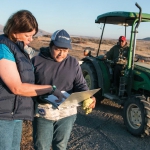
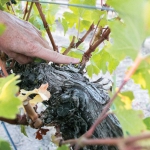
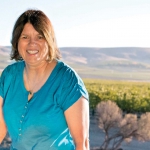
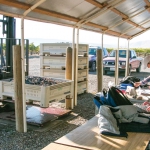
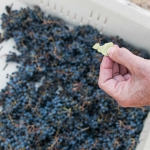




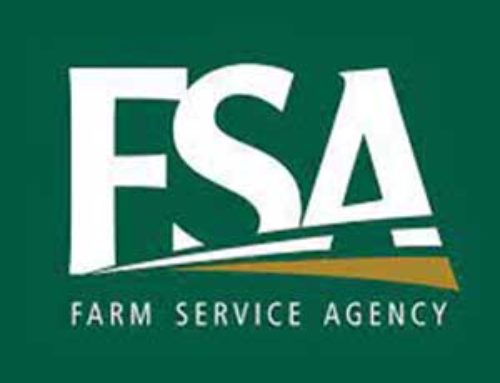
Leave A Comment